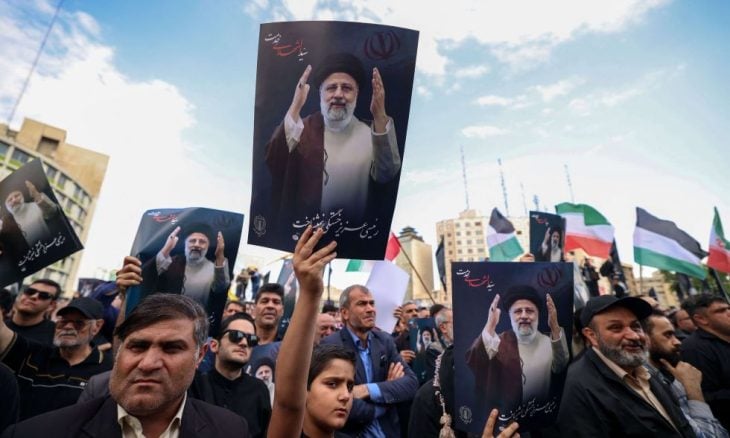It’s unlikely that we’ll know with certainty anytime soon what precisely happened to the helicopter carrying the president of the Islamic Republic of Iran, Ebrahim Raisi, and several other senior officials. On Monday, many hours after Iranian state television first reported the vehicle’s “hard landing,” it confirmed what everyone seemed to know: Raisi and his foreign minister, Hossein Amir-Abdollahian, along with other officials on board were dead.
Sign up for Democracy, Refreshed, a newsletter series on how to renovate the republic.
Even though it appeared that the crash was a weather-related accident, few details were released to the public, naturally fueling wide speculation among observers. Iranian authorities’ track record of tampering with the crash sites of aviation disasters does little to instill confidence that they will be transparent in reporting their findings, which inevitably leads to more questions.
Let’s address the most basic one first: How can a vehicle transporting top officials of a large country — one credited with all manner of sinister powers — simply disappear within its borders and for so long? The likeliest answer is that Iranian authorities knew immediately what had happened but dragged their feet while they considered how to inform the nation and the world.
During those long hours when officials had little to say, conspiracy theories undermining the regime proliferated. All three point to weaknesses the regime would prefer to hide. In walking through them here, I’ll save the most probable explanation for last.
Inevitably, some pointed to Israel as a possible culprit. That country denied any involvement, but it has done that in previous instances when it killed key Iranian officials. Regardless of whether Israel played a role, ordinary Iranians will not dismiss the possibility that this was a message to Iran’s supreme leader, Ayatollah Ali Khamenei: that Israeli forces truly seem capable of doing whatever they like inside Iran. Even if this is not true, it does an authoritarian regime no good for its people to think it might be.
Another pesky theory that will be hard for the regime to shake was the notion that this was an inside job.
Although Iran is a tightly controlled system that usually bends to Khamenei’s whims, that doesn’t mean political competition doesn’t exist. In fact, it’s rampant. Raisi was thought to have been handpicked by the supreme leader to be president. Though astute analysts doubted Raisi had the chops to rise to the top, it was widely assumed that he was in the running to succeed Khamenei.
Follow Jason Rezaian’s opinions
Follow
Now, Khamenei’s son, Mojtaba, is the likeliest person to assume the full power of the state when his father dies. There was a time when loyalty meant something in Iran’s theocratic system, but there has also been a long history of violent and unresolved deaths within the state in the 45-year history of the Islamic republic. In the eyes of some Iranians, this will make Mojtaba and his cronies immediate suspects — and for regime insiders, it’s yet another sign that deadly infighting is likely to increase after Khamenei dies.

